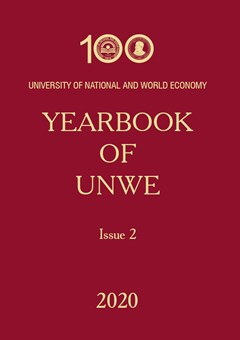Corporate Management, Contemporary Development Process of the Economy
Authors: Maya Tripunoska, Fisnik Ferati, Mirko Tripunoski
Abstract
The level of integration and interconnectedness within states and societies is steadily rising, so goods, capital, people and knowledge easily overcome existing obstacles. The process of corporate management systems is improving, but is also bringing certain problems. One of the important determinants is managing the human resources process, skills and creative abilities to properly manage the overall processes of the organizations in the economy and the public sector, thus achieving its efficiency and effectiveness where the modern corporate management principle points to the fact that the most important capital is the intellectual, which at the same time provides a wealth of knowledge.
Changing needs is an opportunity that represents a different approach to thinking both at an organizational and at an individual standpoint. The advancements in economic, political and cultural processes lead to the shift of the boundaries for understanding the contemporary ways of their acting and functioning. Special emphasis is placed on employee relations, ethical management, market relationships, environmental relationships and community investment.
JEL: M10, M16

